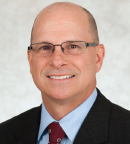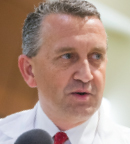Although more people than ever before are surviving cancer—there are currently 14.5 million cancer survivors, and that number is expected to climb to 19 million by 20241—they often experience long-lasting physical, emotional, and financial concerns related to the disease. To address the unmet long-term needs of cancer survivors, ASCO, the American Academy of Family Physicians (AAFP), and the American College of Physicians (ACP) came together to launch the Cancer Survivorship Symposium: Advancing Care and Research—A Primary Care and Oncology Collaboration, which was held in January in San Francisco.
The overarching goal of the symposium was to help attendees recognize the late effects of cancer and its treatment; develop plans for appropriate surveillance for cancer recurrence; examine gaps in the multidisciplinary and interprofessional approaches in the continuum of survivorship care; analyze current research on survivorship science; identify tools and guidelines to implement best practices in cancer survivorship care across interdisciplinary and interprofessional health-care teams; integrate survivorship care plans into primary care practice to address the myriad needs many patients have following treatment; and review models of communication and coordination of care among providers, including oncologists, primary care physicians, advanced care practitioners, nurses, and other health-care professionals. In recognition of the importance of inclusion and coordination among the various health-care providers involved in the long-term continuum of survivorship care, each of the symposium’s educational sessions featured presentations by both an oncologist and a primary care clinician.
The 2-day symposium attracted over 800 attendees—far surpassing the projected number of 500—across a variety of disciplines, including oncology, primary care, cardiology, radiology, surgery, and research, as well as patient advocates, patients, and survivors. A total of 268 study abstracts were presented.
The first collaboration among ASCO, the AAFP, and the ACP, the Cancer Survivorship Symposium demonstrated the necessity of coordinating survivorship care across specialties and practices and helping survivors make the transition to their primary care physician at the end of their cancer treatment.
Fractured Care

This is the first meeting that has focused on the relationship between oncologists and primary care clinicians in the care of cancer survivors, and it has generated much energy and excitement in our respective fields.— Kevin C. Oeffinger, MD
Tweet this quote
“The Institute of Medicine’s [IOM’s] landmark report, From Cancer Patient to Cancer Survivor: Lost in Transition,2 identified the fractured care experienced by many cancer survivors, including the lack of communication between oncology specialists and primary care physicians and the haphazard way in which many survivors are transitioned,” said Kevin C. Oeffinger, MD, Director of the Cancer Survivorship Center at Memorial Sloan Kettering Cancer Center in New York. He is also Chair of the Steering Committee and Chair-Elect of the Program Committee for the Cancer Survivorship Symposium.
“The IOM report laid the groundwork for us to provide what we call risk-based survivorship care regardless of the setting and regardless of the provider, and that focuses on the key components of care: monitoring for late effects of treatment and cancer recurrence, screening for second cancers, and counseling and education on how survivors can reduce their risk for long-term morbidities,” he continued. “This is the first meeting that has focused on the relationship between oncologists and primary care clinicians in the care of cancer survivors, and it has generated much energy and excitement in our respective fields.”
And perhaps it has helped increase the comfort level of primary care physicians in caring for patients with a history of cancer. A 2014 survey of 1,100 general internists to determine their attitudes and knowledge about the care of adult survivors of childhood cancer found that, on average, internists reported being “somewhat uncomfortable” caring for childhood cancer survivors, and only 36.9%, 27%, and 25% of respondents said they were “somewhat comfortable” or “comfortable” caring for survivors of Hodgkin lymphoma, acute lymphoblastic leukemia, and osteosarcoma, respectively.3 A large majority of survey respondents, 72%, said they never received a survivorship care treatment summary—perhaps a contributing factor to their discomfort level.

Bringing together the perspectives of oncologists, primary care physicians, advanced care practitioners, nurses, patients, and survivors in this symposium provided us with the opportunity to take a giant leap forward.— Bryan Bognar, MD, MPH, FACP
Tweet this quote
“There will always be situations in which primary care physicians feel like they have reached the end of their comfort zone when it comes to caring for cancer survivors. I believe we can increase that zone of comfort by better introducing them to the language of survivorship, which hasn’t been integrated into the primary care literature as fully as it could,” said Bryan Bognar, MD, MPH, FACP, Vice Dean and Professor of Internal Medicine at the University of South Florida Morsani College of Medicine, Tampa, and a member of the Program Committee of the Cancer Survivorship Symposium. “There is a lot of work that needs to be done to overcome these obstacles, but bringing together the perspectives of oncologists, primary care physicians, advanced care practitioners, nurses, patients, and survivors in this symposium provided us with the opportunity to take a giant leap forward.”
Looking Ahead
Dr. Oeffinger agrees. “I think this meeting was highly successful in bringing together the perspectives of clinicians from both backgrounds to outline the steps that can be taken in the community and academic settings to advance the care of cancer survivors. This meeting laid the foundation for further collaboration among ASCO, ACP, and AAFP. We all recognize what needs to be done to ensure the best care for cancer survivors, and we know that no one specialty can achieve that goal on its own. It requires teamwork, and the centerpiece of that goal is our patients and survivors. Many of us are optimistic that the care cancer survivors receive over the next decade will be radically different from the care that has been delivered over the past 3 decades,” said Dr. Oeffinger.
Program development for next year’s Cancer Survivorship Symposium is already underway and will likely focus on such topics as treating cancer as a chronic disease; rehabilitation approaches to help patients regain strength and physical functioning after treatment; the incorporation of integrative medicine modalities into cancer care; and palliative medicine. Next year’s symposium will be held on January 27–28 in San Diego. ■
Disclosure: Drs. Oeffinger and Bognar reported no potential conflicts of interest.
References
1. American Cancer Society: Cancer Treatment & Survivorship Facts & Figures. Available at cancer.org/research/cancerfactsstatistics/survivor-facts-figures. Accessed February 8, 2016.
2. Hewitt M, Greenfield S, Stovall E (eds): From Cancer Patient to Cancer Survivor: Lost in Transition. Washington, DC; National Academies Press; 2005.
3. Suh E, Daugherty CK, Wroblewski K, et al: General internists’ preferences and knowledge about the care of adult survivors of childhood cancer: A cross-sectional survey. Ann Intern Med 160:11-17, 2014.

